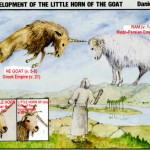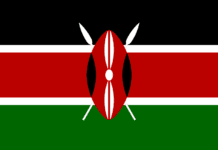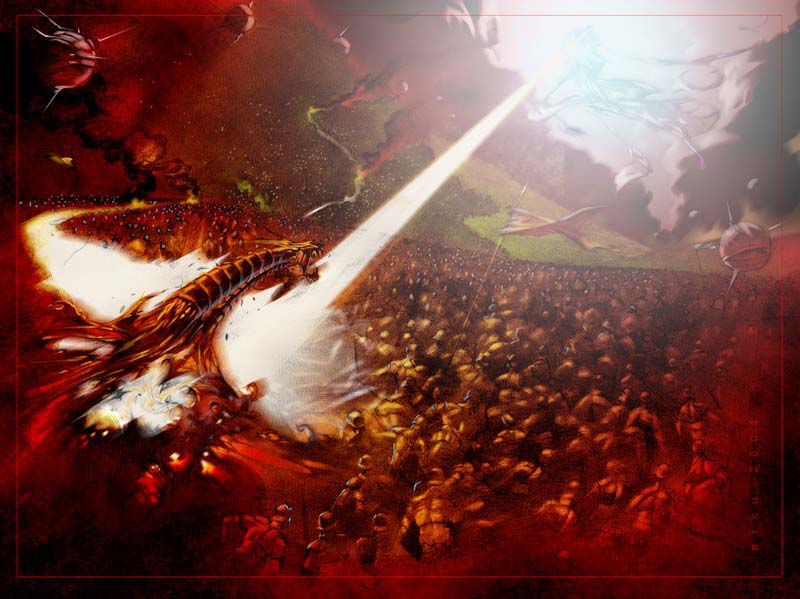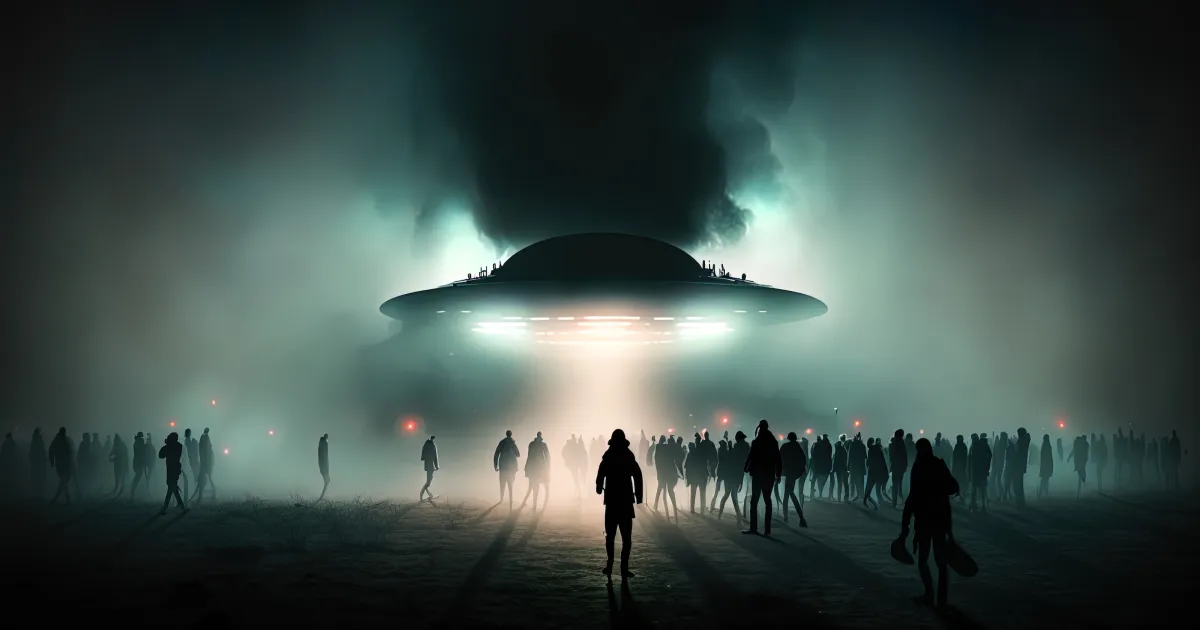
In 332BC or their about, Alexander great was busy conquering the entire world. He came to Jerusalem ready to conquer it and out come Jaddua, the high priest in Jerusalem that time, and met Alexander outside the city.
He showed Alexander Daniel chapter 8 written 200 years previously and how he (Alexander) was prophesied. Alexander was touched and blown away.
He could not believe how he was prophesied 200 years ago and this made him spare Jerusalem. Reason Jerusalem was not conquered by Alexander and this is the Daniel’s vision of a ram and he-goat.
The Ram
Dan 8:3: Then I lifted up mine eyes, and saw, and, behold, there stood before the river a ram which had two horns: and the two horns were high; but one was higher than the other, and the higher came up last.
The ram represents the Media and Persians synonymous with the bear in Daniel’s dream of four beasts and the breast and two arms in Nebuchadnezzar’s dream. The two horns are the kings or rulers of the Media and Persians. Dan 8:20: the ram which you saw having two horns are the kings of Media and Persia.
The Media and Persians rose like a bear: first the Media then the Persians. The Persians who come last become powerful than the Media as it is said, ‘the higher come up last’.
The he-goat
Dan 8:5: And as I was considering, behold, an he goat came from the west on the face of the whole earth, and touched not the ground: and the goat had a notable horn between his eyes.
The he-goat represents the king of Greece Empire and the great horn between his eyes is the first king of Greece synonymous with the leopard in Daniel’s dream of four beasts or the belly in Nebuchadnezzar’s dream.
Dan 8:21: And the rough goat is the king of Grecian: and the great horn that is between his eyes is the first king. The first king of Greece is Alexander
Greece Persians war
Dan 8:6-7: And he came to the ram that had two horns, which I had there seen standing before the river, and ran unto him in the fury of his power. And I saw him come close unto the ram, and he was moved with choler against him, and smote the ram, and brake his two horns: and there was no power in the ram to stand before him, but he cast him down to the ground, and stamped upon him: and there was none that could deliver the ram out of his hand.
In the 330s Alexander, with only 3500 armies, took on the Media and Persians empires who had over a million armies. They clashed and Alexander overcame and overthrew them.
Dan 8:8: Therefore the he-goat waxed very great: and when he was strong, the great horn was broken; and for it came up four notable ones toward the four winds of heaven.
After crushing the Media and Persians, Alexander become known as Alexander the great and he went on to conquer the entire world thus it is said, ‘Therefore the he goat waxed very great’.
Alexander had made his capital city in Babylon and at 33 years old, when he was at his peak, one night he wept ‘Are their more worlds for me to conquer’ (he felt empty inside).
He threw a big drinking party and became drunk. A storm came down that night and as he walked outside drunk in the storm, he fell sick and died as prophesied, ‘and when he was strong, the great horn was broken’. He died when he was strong at his peak.
When Alexander died his empire was split into four kingdoms and his four top generals took over the kingdoms as said, ‘and for it came up four notable ones toward the four winds of heaven’.
These four generals are synonymous to the four wings of a fowl in Daniel’s dream of four Beasts.
The four Alexander generals are;
- Cassander who took over Europe,
- Lysimachus; took over Asia minor called today Turkey,
- Ptolemy took over Egypt and
- Seluecus took over Asia, Babylon and Syria.
Dan 8:9: And out of one of them came forth a little horn, which waxed exceeding great, toward the south, and toward the east, and toward the pleasant land.
A little horn came out from one of the four generals of Alexander as said, ‘And out of one of them came forth a little horn’. This little horn is different from the little horn in Daniel 7 (Daniel’s dream of four beasts).
The little horn in Daniel 7 comes from the Ten Nations or European Community while this little horn comes out from the four generals that took over from Alexander.
Antiochus Ephipanes
Out of the Seluecus family came one little horn; Antiochus Ephipanes. He came to the scene as the leader of the Babylon and Syria. He called himself ‘Theos Ephipanes’.
Theos meaning god and Ephipanes meaning manifestation of god. Thus Theos Ephipanes means god manifested.
Theos Ephipanes started to conquer the world setting his eyes on the pleasant land. The pleasant land is synonymous with Israel, the land of milk and army. He had so much hate and enmity for the Jews.
Dan 8:10: And it waxed great, even to the host of heaven; and it cast down some of the host and of the stars to the ground, and stamped upon them. The host of heaven is the people of Israel as we see in Dan: 8:24.
And his power shall be mighty, but not by his own power: and he shall destroy wonderfully, and shall prosper, and practise, and shall destroy the mighty and the holy people. The horn (Antiochus Ephipanes) persecuted the Jews. Many Jews were killed.
Claiming to be God he built an image and placed it in the temple and demanded all Jews to worshiped it. He took a pig slaughtered it on the altar in the temple and made all Israel priests drink its blood.
He also changed the Mosaic Law and stopped the sacrifices. Dan 8:12: And an host was given him against the daily sacrifice by reason of transgression, and it cast down the truth to the ground; and it practiced and prospered.
He was demonized Satan, and he is the shadow of The Antichrist who is yet to come. The Antichrist will do what Antiochus Ephipanes did and more.
Maccabean Revolt
Dan 8:13-14: Then I heard one saint speaking, and another saint said unto that certain saint which spoke, How long shall be the vision concerning the daily sacrifice, and the transgression of desolation, to give both the sanctuary and the host to be trodden under foot? And he said unto me, Unto two thousand and three hundred days; then shall the sanctuary be cleansed.
When Antiochus Ephipanes began his reign in September 6th 171BC, and come to the pleasant land, he went to the priests in the temple and made them blasphemy God and worship his image.
A man, Mattityahu Maccabee, refused to give in to the pressure of Antiochus Ephipanes and his soldiers and they killed him. Then his five sons were angry and formed an army to attack Antiochus Ephipanes and his armies.
Soon other Jews joined and the Maccabean Revolt took place up to December 25th 165BC when they drove out Antiochus Ephipanes and his armies.
They went into the temple cleaned it and re-lit the candles but there was a problem. The oil remaining to keep the candle lit could only last one day and it took eight days to make and sanctify the oil to keep the candles lit. They prayed and miraculously the oil lasted eight days. Thus in 25th December as the world celebrates Christmas the Jews celebrate Hanukkah for eight days.
From the day Antiochus Ephipanes started the abomination of the Holy City, through the Maccabean revolt which ended on December 25th 165BC, the days are exactly two thousand and three hundred days as prophesied, ‘Unto two thousand and three hundred days; then shall the sanctuary be cleansed’.
Peace be with you.























